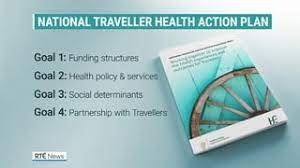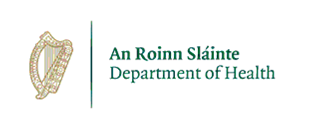
The Minister for Health, Stephen Donnelly TD; the Minister for Public Health, Wellbeing and the National Drugs Strategy, Frank Feighan TD; the Minister for Children, Equality, Disability, Integration and Youth, Roderic O’Gorman TD; and the HSE have announced the launch of the first National Traveller Health Action Plan (NTHAP) 2022-2027 to improve the health experiences and health outcomes for Travellers.
The Department of Health is providing additional ring-fenced funding of €1m in 2023 to support the implementation of the plan, with a further €300,000 specifically for mental health services.
The NTHAP acknowledges the severe health inequalities that Travellers experience, arising from the social determinants of health, and the obstacles they can face in accessing healthcare services. It will provide a solid foundation upon which to build and maintain a legacy of success in addressing the additional health needs of the Traveller population.
Minister for Health, Stephen Donnelly TD, said:
“I strongly endorse this action plan as it aligns with my Department’s strategic priority to improve access to healthcare for socially excluded groups. It is a comprehensive public health response to the health needs of Travellers, that that sets out tailored and affirmative measures to prevent disease, promote health and prolong life, and are delivered in partnership with Traveller
“In particular, I welcome the focus on the mental health needs of Travellers, which is in line with the prioritisation of Travellers in my Department’s mental health policies.
“To address the needs of Traveller women who experience homelessness additional funding is being provided from the Women’s Health Action Plan.”
The plan includes health and social care interventions that will have the most impact on Traveller health including mental healthcare and chronic disease diagnosis, early interventions and management.
The plan contains 45 actions, which include:
- Continue to resource Primary Health Care for Traveller Projects (PHCTPs) in line with key responsibilities for marginalised communities; identify resources to reinstate and expand PHCTPs in areas where they do not exist.
- Consolidate the public health measures put in place to minimise the impact of COVID-19 and other communicable diseases on Travellers, including primary childhood immunisation programmes, control of outbreaks such as hepatitis A, and COVID-19 vaccinations.
- Support and resource peer-led initiatives focused on Traveller men’s health to improve mental health and wellbeing.
Minister for Public Health, Wellbeing and the National Drugs Strategy, Frank Feighan TD, said:
“I strongly believe that Travellers have the right to the highest attainable standard of health as is the norm in Irish society. Regrettably, the improvements in the health of the Irish population have not benefited the Traveller community who continue to experience severe health inequalities, reflected in a shorter life and a poorer quality of health.
“I welcome in particular the initiative to address the social determinants of Traveller health in conjunction with the Department’s Healthy Communities programme. This initiative tailors mainstream health policy to take account of the specific social factors influencing the health of Travellers.”
The Minister for Children, Equality, Disability, Integration and Youth, Roderic O’Gorman TD, said:
“We know that Travellers have poorer health outcomes than that of the general population, and face particular challenges in accessing health care services. The Government is committed to improving the health experiences and outcomes of the Traveller community, and the publication of the National Traveller Health Action Plan today, and its timely implementation, will be key to reducing the health inequalities which exist for Travellers in our society.
“The development and implementation of a detailed action plan to address the specific health needs of Travellers is an action of the National Traveller and Roma Inclusion Strategy [NTRIS], which is led by my Department, and is a key commitment of the Programme for Government. I welcome the publication of the National Traveller Health Action Plan today as delivering on those commitments.”
Martina Queally, Chief Officer of HSE Community Healthcare East and Chair of the National Traveller Health Steering Group, said:
“The National Traveller Health Action Plan is an important step forward in our work to achieve better health outcomes for Travellers. I wish to thank the Steering Group and all those who participated in the consultation process including Travellers, Traveller organisations, my colleagues in the HSE and the Department of Health for contributing to the development of this plan.
“By working together and implementing targeted actions that address Travellers’ specific health needs, we can make a positive impact on Traveller health in Ireland and help reduce health inequalities. I look forward to continuing to work with our partners to support this important work.”
Mary Brigid Collins, Primary Health Care for Travellers representative on the National Traveller Health Action Plan Steering Group, said:
“I am delighted at the publication of this much-needed National Traveller Health Action Plan. I believe it has the potential to bring about real positive change for Travellers around the country. It has Traveller inclusion at the centre of the plan and recognises the impact of racism, discrimination, poor living conditions, poor outcomes in education and unemployment have on health outcomes.
“It recognises also the importance of active Traveller participation and the role of Traveller Health Units and Traveller Primary Health Care Projects. Travellers look forward to continuing to work with the Health Service Executive and the Department of Health and will continue to highlight the need for recurring and realistic budgets if we’re serious about implementing the Plan.”
The HSE will establish a steering group to monitor and report on the implementation of the plan at national and regional levels. Traveller Health Units will also develop a 5-year implementation plan and publish an annual report.

